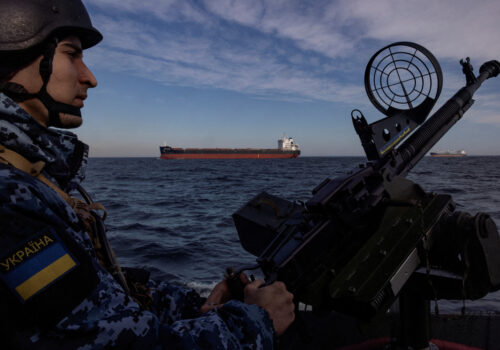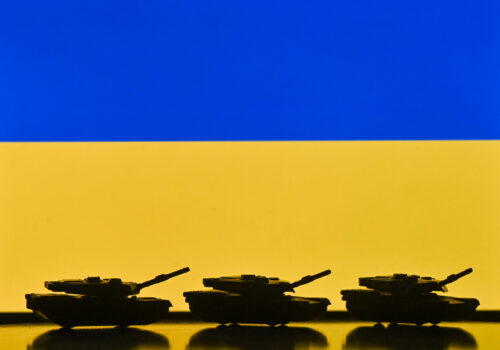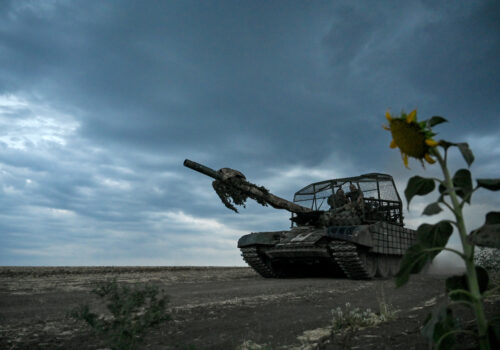World News – 2024 – Video Playlist | Video Playlists | Sites: | newsandtimes.org | links-newsandtimes.com | worldwebtimes.com | southcaucasusnews.com | russianworld.net | jossica.com | octobersurprise2016.org | bklyntimes.com | oceanavenuenews.com | fbireform.com | bloggersunite.net | octobersurprise-2024.org | Trump-News.org | Audio-Posts.com | Bklyn-NY.com | Posts Review – newsandtimes.org
The collapse of the governing coalition in Germany, which was made official on December 16 when Chancellor Olaf Scholz lost a Bundestag no-confidence vote, has been followed closely in Kyiv. This interest is understandable; Germany is one of Ukraine’s most important supporters in Europe and has provided military aid valued at over 11 billion euros since the onset of Russia’s full-scale invasion almost three years ago. This is more than any other European country and second only to the United States.
The next government in Berlin will be confronted by a number of challenges as it addresses the future of German support for Ukraine. However, there are indications that Kyiv and the wider transatlantic community may have reason to welcome the early Bundestag elections slated for February 2025.
With the Christian Democratic Union (CDU) currently well ahead in nationwide polls, CDU leader Friedrich Merz is widely expected to be the next chancellor. This is potentially good news for Ukraine. Merz is more hawkish toward Russia than current German Chancellor Olaf Scholz. He is also poised to have a stronger majority in the Bundestag than Scholz, whose three-party coalition ultimately imploded amid internal feuds. For Ukraine, this would hopefully mean more predictability in bilateral relations with Berlin.
Before the election campaign officially began in Germany, Merz traveled to Kyiv in early December for meetings with the Ukrainian government. He is a vocal proponent of delivering German Taurus cruise missiles to Ukraine, which Scholz has consistently refused to allow.
Scholz has also been criticized for a recent phone call to Vladimir Putin, which critics saw as indicating Western disunity at a critical point in diplomatic efforts to set the stage for possible peace talks. Meanwhile, Scholz’s party has been emphasizing “peace” rather than security in its campaign messaging, further widening the gap with the CDU, which is seen as being comparatively tougher on Russia.
Stay updated
As the world watches the Russian invasion of Ukraine unfold, UkraineAlert delivers the best Atlantic Council expert insight and analysis on Ukraine twice a week directly to your inbox.
The outlook from Ukraine’s perspective is not entirely favorable. If he does secure election victory, Merz will face many of the same issues that confronted his predecessor. This includes Germany’s constitutional debt brake, which in effect limits the German government’s ability to spend more on defense without cutting expenditure elsewhere.
The CDU would have limited tools to safeguard funding for Ukraine. They could potentially reform the debt brake or seek to reduce state funding in other areas like welfare and transportation (which voters would be unlikely to appreciate). Alternatively, they may repeat the approach adopted by Scholz and attempt to pass another extra-budgetary “special fund.” While this is not a long-term solution for Germany’s defense spending, a new special fund specifically for Ukraine could potentially win enough political will in the Bundestag under the right stewardship.
Eurasia Center events

With Donald Trump’s election victory fueling uncertainty over the future of US military support for Ukraine, finding solutions to maintain German aid should be high on the agenda for the new government in Berlin in early 2025. In addition to Trump’s imminent return to the White House, France also remains stuck in a period of domestic political instability, which could disrupt French aid to Ukraine at a time when Europe’s Franco-German engine is more necessary than ever.
Officials in Kyiv will be keen to avoid any developments in Germany that raise questions over the country’s continued backing for Ukraine. Russian President Vladimir Putin is widely believed to be counting on an eventual weakening of Western resolve as he looks to outlast the democratic world in Ukraine. Any signs of disunity or uncertainty in Berlin could help convince Putin that time is on his side, thereby further reducing the chances of meaningful peace negotiations.
Trump has vowed to end the war and is widely expected to push for the start of talks once he takes office in January. However, with the Russian army advancing in eastern Ukraine amid mounting signs of deteriorating Ukrainian morale and increasingly acute troop shortages, Putin will be in no hurry to compromise. Unless the battlefield dynamics change significantly in the coming weeks, it may prove difficult to persuade Putin to accept any peace terms that do not legitimize his invasion or represent a clear Russian victory.
There is a good chance that Germany’s snap elections will result in increased support for Ukraine in Berlin. However, the uncertainty of the next two months presents an unwelcome challenge, particularly as Kyiv seeks to convey a message of Western unity to Moscow. As they face another wartime winter, Ukrainians must wait to see who will lead the new German government and how they will articulate their plans.
Stuart Jones is a program assistant at the Atlantic Council’s Europe Center. Katherine Spencer is a program assistant at the Atlantic Council’s Eurasia Center.
Further reading

UkraineAlert
Nov 18, 2024
Imposing neutrality on Ukraine will not stop Putin or bring peace to Europe
By
Mykola Bielieskov
Imposing neutrality on Ukraine will not bring about a durable peace in Europe. On the contrary, it would leave Ukraine at Putin’s mercy and set the stage for a new Russian invasion, writes Mykola Bielieskov.

UkraineAlert
Dec 19, 2024
Five things Russia’s invasion has taught the world about Ukraine
By
Peter Dickinson
Vladimir Putin’s brutal invasion of Ukraine has thrust the country into the global spotlight and transformed international perceptions of Ukraine in ways that will resonate for decades to come, writes Peter Dickinson.

UkraineAlert
Dec 10, 2024
Russian victory in Ukraine would spark a new era of global insecurity
By
Victor Liakh
If Vladimir Putin’s Russia is allowed to claim even a limited victory in Ukraine, it will embolden other authoritarian regimes and plunge the world into a new era of insecurity, writes Victor Liakh.
The views expressed in UkraineAlert are solely those of the authors and do not necessarily reflect the views of the Atlantic Council, its staff, or its supporters.

The Eurasia Center’s mission is to enhance transatlantic cooperation in promoting stability, democratic values and prosperity in Eurasia, from Eastern Europe and Turkey in the West to the Caucasus, Russia and Central Asia in the East.
Follow us on social media
and support our work
The post How might Germany’s coming election shape future support for Ukraine? appeared first on Atlantic Council.
World News – 2024 – Video Playlist | Video Playlists | Sites: | newsandtimes.org | links-newsandtimes.com | worldwebtimes.com | southcaucasusnews.com | russianworld.net | jossica.com | octobersurprise2016.org | bklyntimes.com | oceanavenuenews.com | fbireform.com | bloggersunite.net | octobersurprise-2024.org | Trump-News.org | Audio-Posts.com | Bklyn-NY.com | Posts Review – newsandtimes.org


